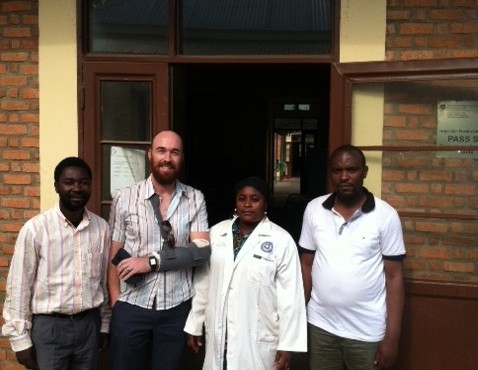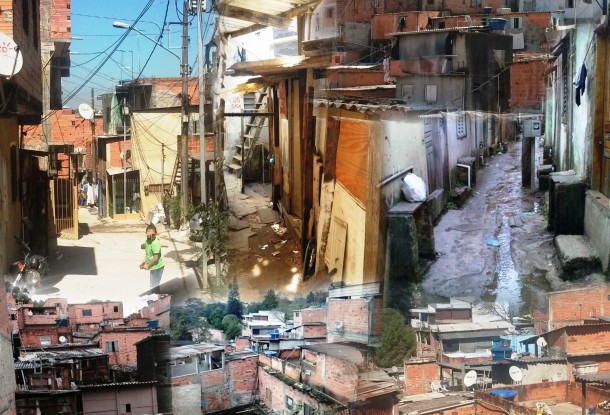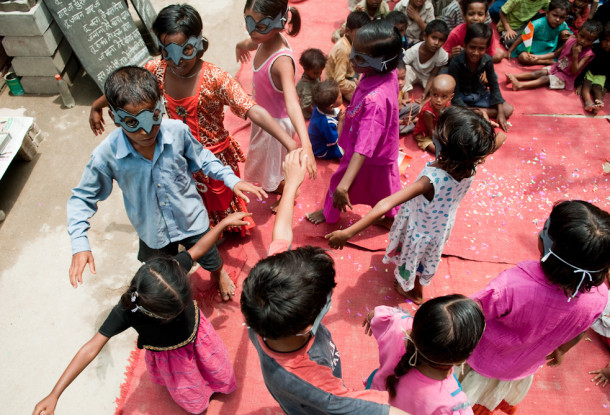Innovation Summary
 Women in Eastern Democratic Republic of the Congo (DRC) experience high levels of gender-based violence, including family violence and sexual assault associated with ongoing civil unrest and ethnic conflict. Mothers who are debilitated by depression or other psychological consequences of violence may face difficulties providing the necessary care and nurturing during the first year of their infant’s lives, with potentially negative effects on their cognitive, motor, linguistic and emotional development [4]. Deficits in maternal caregiving during the first year of life can result in lifelong consequences [3].
Women in Eastern Democratic Republic of the Congo (DRC) experience high levels of gender-based violence, including family violence and sexual assault associated with ongoing civil unrest and ethnic conflict. Mothers who are debilitated by depression or other psychological consequences of violence may face difficulties providing the necessary care and nurturing during the first year of their infant’s lives, with potentially negative effects on their cognitive, motor, linguistic and emotional development [4]. Deficits in maternal caregiving during the first year of life can result in lifelong consequences [3].
HAI’s innovation will pilot the use of paraprofessionals to provide a cognitive-behavioral intervention for major depression and traumatic stress with mothers who are victims of sexual violence, intended to improve the mothers’ ability to promote the healthy brain development of their infants, measured at approximately 9 months of age. The research cohort of mothers will receive the mental health intervention during late pregnancy or the first three months of their infant’s life, and the control group will be wait-listed and will receive the mental health intervention when their infants are approaching 9 months of age. Mothers in both the research and control group will be assessed to determine the efficacy of the mental health intervention on reducing depression and anxiety. Both the research cohort and the control group will be enrolled in well-baby care, nutritional counseling, and parenting skills training. This project will take place in a rural area within the context of the Congolese primary health care system.
Gallery
Impact
Expected Impact:
- 400 mothers and children will receive health services through the project
- 60% increase anticipated in the # of infants from the intervention group who have high cognitive and motor function, as compared to control group; 25% reduction in symptoms of depression and anxiety for mothers
- HAI anticipates that “relais communitaires” can be trained and supervised to provide effective, evidence-based treatment for depression and PTSD at a cost of <$100 per mother/infant (exclusive of research costs and after the proof of concept is demonstrated)
For several years, a range of international organizations have implemented psychosocial projects in the Democratic Republic of Congo (DRC) focusing on female victims of violence, however, none of those programs have attempted to improve maternal mental health with the specific goal of promoting infant development. HAI’s program, Matuzo Bora Ya Watoto Wachanga (Good Care for Infants), is an original project for the DRC that will have a beneficial effect not just on vulnerable mothers, but on their children for decades to come.
-Constantin Kahorha, Co-Principal Investigator and HAI Regional Director
Innovation
Women in rural eastern Congo face a high risk of sexual assault and other forms of gender-based violence, perpetrated by militant groups, renegade and poorly disciplined members of the Congolese army, and sometimes their own communities or families [5]. Many expecting and new mothers who are survivors of sexual assault experience significant symptoms of depression and anxiety associated with traumatic stress. Left untreated, these women often find it more difficult carrying out normal daily functions, including caring for their newborns, which can have permanent negative effects on the infants’ health and cognitive development [1]. Without adequate care, mothers suffering from severe forms of depression are less likely to establish a connection with their children, foster healthy development, and ensure access to nutrition, all critical indicators for newborns’ cognitive functioning [2].
Through this program, HAI will determine the effectiveness of treatment for depression among mothers and demonstrate the linkage between reduced maternal depression and parent adaptive behavior that results in increased cognitive, motor, and language skills in infants during the first year of life. HAI will prove that this intervention can be implemented by paraprofessionals with limited formal education, and that the model is replicable in other low-resource contexts. Based on experience in other post-conflict societies, HAI is confident that paraprofessionals can be taught simple, replicable and effective interventions for depression and PTSD. This project will rely upon “relais communitaires,” who act as health promoters in the Congolese primary health care system, to provide a time-limited “components-based” intervention for depression and PTSD, including psychoeducation, gradual exposure, cognitive restructuring, behavioral activation, and relaxation techniques
Collaboration
Funders:
- Saving Brains Partners
Key Partners:
- Panzi Hospital – Democratic Republic of Congo
- International Center for Advanced Research and Training (ICART) – Democratic Republic of Congo
Implementation
Expected Drivers:
- Successful reliance on “relais communitaires”
- Linkage with the existing primary health care system’s postnatal well baby care will be critical for assuring participant recruitment and buy-in.
- Panzi Hospital and its health policy and research division, ICART, will help HAI assure that the intervention, research, and documentation is developed into a model that can be adopted by the Congolese Ministry of Health, and easily replicated in other countries with similarly high rates of maternal depression due to violence and conflict.
- Dependence on the cooperation and support of traditional and religious leaders and traditional healers, who will be informed and encouraged to collaborate with the overall goals of the project.
Expected Challenges:
- Assuring ongoing funding and support from the provincial and national government, which still faces administrative and management challenges in the aftermath of more than two decades of conflict.
- Retention of trained “relais communitaires”; most relais are female, and within Congolese culture, they may withdraw from their positions for family reasons.
- Transportation barriers may affect some program participants, especially after the conclusion of the project when additional participants from remote villages may not be able to afford to come to the primary health centers.
- Research challenges, including assuring that both control and research arms of the study obtain the same nutritional counseling and support, as well as access to other services, so that the research can effectively focus on the efficacy of the mental health intervention itself
Continuation
If this project demonstrates improved maternal care leading to improved infant development, HAI will work with the DRC Ministry of Health and other NGOs to promote integration of mental health care into antenatal and maternal-child health programs more broadly in both South Kivu and in the DRC in general. Widespread training of paraprofessionals in post-conflict environments elsewhere may be feasible and beneficial beyond DRC. HAI is attempting to develop a relatively low-cost model for training paraprofessionals that can be integrated into primary health care systems and mainstreamed.
Evaluation Methods
Matuzo Bora Ya Watoto Wachanga will evaluate the impact of the mental health intervention on the mothers using the Hopkins Symptom Checklist and Beck’s Depression Inventory at intake, at the conclusion of the intervention, and when the mother’s infant is 9 months old. Infant cognitive, emotional, linguistic and motor development will be measured in both the control group and research group when the infant is >9 months old. The project team will use a mixed-methods approach to track and analyze qualitative and quantitative changes among project beneficiaries using a series of standardized monitoring and evaluation tools. Output-level data will be collected through project monitoring reports. Outcome-level data will be collected through intake forms, case files, training pre-/post-tests, and standardized instruments, including the Beck Depression Index, and Hopkins Symptom Checklist. HAI will screen mothers for depression and anxiety using the Hopkins Symptom Checklist prior to enrollment in the study, and will conduct a thorough trauma history to determine if they are symptomatic for post-traumatic stress disorder. The Beck Depression Index will be used to track symptoms of depression among mothers during the third trimester and again at the conclusion of treatment, when the infant is 9 months old. The Bayley Scale or alternative developed in conjunction with GCC will be used to measure infants’ motor skills, cognitive functioning, and receptive and expressive language skills. The project team will conduct a statistical analysis of all project data on a monthly, quarterly, and annual basis.
Impact of Innovation
The immediate beneficiaries will be 400 women and their infants who will participate in the post-natal health and nutrition program with a treatment intervention for depression. Secondary beneficiaries include the 12 trained relais communitaires who will obtain new job skills, and the hospital and health post staff who will be better able to integrate mental health services into their daily work. This information is expected to have wider impact and relevance in maternal-child health programs throughout the region, given the widespread use of sexual assault as a weapon of war.
Cost:
The total cost to implement the program is 265,000 CAD. The intervention is intended to be cost effective and provide significant improvement in functioning, more so than basic psychoeducation or psychosocial programs typically offered to refugee and internally displaced populations. HAI’s model will test whether a basic intervention for maternal depression and traumatic stress during the first year of an infant’s life has a significant beneficial effect on maternal-child attachment and infant brain development. This information is expected to have wider impact and relevance in maternal-child health programs throughout the region and in other low-resource environments in which there is widespread use of sexual assault as a weapon of war.
References
- Davis, Elysia P., and Curt A. Sandman. (2010) “The Timing of Prenatal Exposure to Maternal Cortisol and Psychosocial Stress Is Associated With Human Infant Cognitive Development.” Child Development1: 131-48. Web.
- Fields, Tiffany. (2010) “Postpartum Depression Effects on Early Interactions, Parenting, and Safety Practices: A Review.” Infant Behavior and Development1: 1-6. Web.
- Patel, V., N. DeSouza, and M. Rodrigues. (2003) “Postnatal Depression and Infant Growth and Development in Low Income Countries: A Cohort Study from Goa, India.” Arch Dis Child 88 (2003): 34-37. Web.
- Talge, Nicole M., Charles Neal, and Vivette Glover. (2007) “Antenatal Maternal Stress and Long-term Effects on Child Neurodevelopment: How and Why?” Journal of Child Psychology and Psychiatry3-4: 245-61. Web.
- Johnson, K, Scott J, Rughita B, Kisielewski M, Asher J, Ong R, Lawry L. (2010) “Association of sexual violence and human rights violations with physical and mental health in territories of the Eastern Democratic Republic of the Congo.” JAMA. 2010 Aug 4; 304(5):553-62.
Resources
-
Research
-
Baker-Henningham, H., C. Powell, S. Walker, and S. Grantham-McGregor. (2005) "The Effect of Early Stimulation on Maternal Depression: A Cluster Randomised Controlled Trial." Arch Dis Child 90 (2005): 1230-234. Web.
-
Chowdhary, N., Sikander, S. Atif, A. et al: (2014) “The content and delivery of psychological interventions for perinatal depression by non-specialist health workers in low and middle income countries: A systematic review” Best Pract Res Clin Obstet Gynaecol. Jan 2014; 28(1): 113–133.
-
Imbula Essam B, Okitundu Luwa EA, Mampunza Ma-Miezi S. (2012) “Postpartum depression in Kinshasa (DR Congo): prevalence and risk factors” Med Sante Trop. 2012 Oct-Dec;22(4):379-84.
-
Murray, L. et al (2011) Building capacity in mental health interventions in low resource countries: an apprenticeship model for training local providers International Journal of Mental Health Systems 2011, 5:30
-
Murray, L. and Dorsey, S. (2012) Components-Based CBT Intervention: Southern Iraq Version Therapists Manual (unpublished) Johns Hopkins University, Bloomberg School of Public Health
-
-
Instruments and Batteries
-
Beck Depression Index - track symptoms of depression among mothers
-
Hopkins Symptom Checklist- screen mothers for depression and anxiety
-




